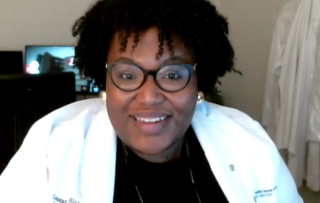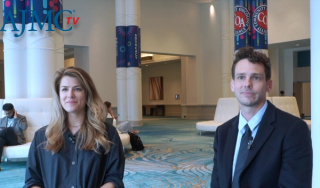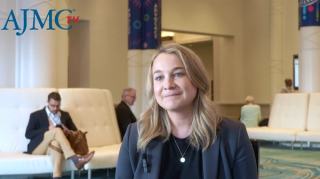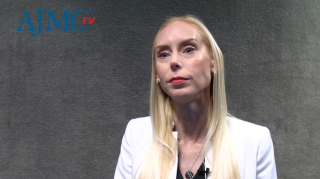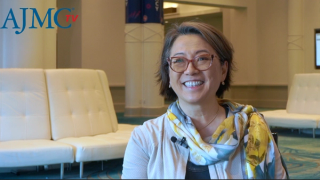
Oncology
Latest News
Latest Videos

Podcasts
CME Content
More News

City of Hope's Salvador Jaime-Casas, MD, discusses a systematic review of recent trials examining objective response rate and adverse events of antibody-drug conjugate (ADC) combinations in advanced urothelial cancer.
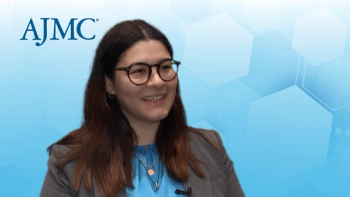
Enfortumab vedotin with or without pembrolizumab offers disease control benefits for patients with upper tract urothelial cancer, said Evangelia Vlachou, MD, of Johns Hopkins Medicine.

Adding 6 months of neoadjuvant deprivation therapy (NADT) doesn’t seem to add any benefit for patients with intermediate-risk prostate cancer treated with external-beam radiation therapy (EBRT), according to 15-year outcomes presented by Barry Goy, MD, of Kaiser Permanente.

Health systems are facing hurdles to implementing new and effective metastatic urothelial carcinoma (mUC) therapies into practice due to high costs and a lack of targeted initiatives to aid health care providers with integration.

Data on enfortumab vedotin plus pembrolizumab for advanced bladder cancer, along with updates on antibody-drug conjugates, biomarkers, and other cancer treatments, will be highlighted at the American Society of Clinical Oncology Genitourinary Cancers Symposium (ASCO GU).

“To error is human, and also to error is in machine learning,” said Debra Patt, MD, PhD, MBA, MPH.

These new data highlight the need for improved pain management among patients with cancer and survivors.

Terra Wonsettler, PharmD, MBA, vice president of pharmacy for Evolent, discusses the recent HHS OIG report that stemmed from the 2021 FDA approval of aducanumab (Aduhelm) and use of the accelerated approval pathway.

SEER data show that small cell lung cancer (SCLS) incidence has steadily declined due to reduced smoking rates, but survival outcomes have seen only minimal improvement, underscoring the need for more effective treatments.

Dementia was more prevalent in older patients with some cancer types, and comorbid dementia in this population was associated with unplanned or unnecessary hospitalization.

A single-center study suggests the surgery is safe and effective even when tumors are large or located in high-risk areas.

The companies announced the deal in a statement February 5, 2025, noting that the first patient had enrolled in a prospective clinical study using the test to monitor cancer recurrence across multiple solid tumor types.

Clayton Irvine, PharmD, MBA, MS, senior manager of oncology care at Mayo Clinic, emphasizes the need for health care providers to balance quality patient care with rising costs by openly discussing financial implications with patients and educating themselves on cost-effective treatments.

Debra Patt, MD, PhD, MBA, MPH, warns that prior authorization barriers are delaying critical cancer treatments and urges a regulatory fix for Stark Law restrictions on mailing oral oncolytics.

All patients involved in the phase 1 trial of a personalized cancer vaccine for high-risk stage III/IV kidney cancer showed a successful anticancer immune response.
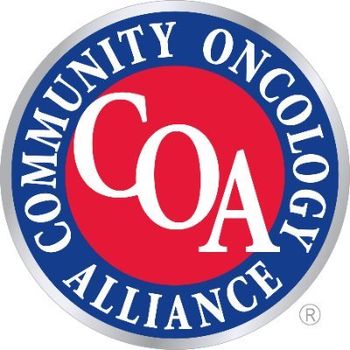
The 5-part plan focuses on issues that have been calling cards for the Community Oncology Alliance (COA) in recent years, which gained traction in the last Congress and show up regularly on lists of the most pressing problems in health care.

Debra Patt, MD, PhD, MBA, MPH, emphasizes advocacy for pharmacy benefit manager (PBM) reform, physician reimbursement, and sustainable policy solutions to improve access to community cancer care.

A new meta-analysis adds to the body of literature promoting the benefits of exercise for patients with cancer.
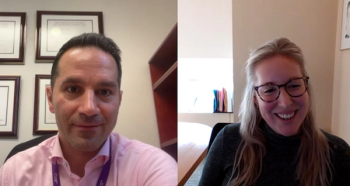
February 4 is World Cancer Day, and in these interviews with our Strategic Alliance Partner, NYU Langone Health, we learn about the importance of forming strong relationships with the communities you are located in and with whom you work to optimize cancer-related outcomes.

A panel discussion during the JPMorgan conference earlier this month examined where oncology drug development is headed, driven in part by advances in diagnostic testing.

Tovorafenib generated durable drug holiday responses in pediatric patients with BRAF-altered relapsed/refractory low-grade glioma.
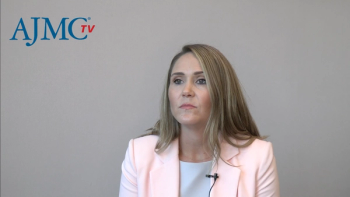
Chelsee Jensen, PharmD, BCPS, senior pharmacy specialist at Mayo Clinic, suggests that medical providers can reduce patient and system costs by optimizing the use of generics and biosimilars, which offer lower costs without compromising safety and efficacy.

Kirollos Hanna, PharmD, BCPS, BCOP, FACCC, director of pharmacy at Minnesota Oncology, discusses how the prospect of patient longevity, amidst advancing therapeutics, factors into oncology care.

Young patients with cancer residing in historically redlined areas face a significantly higher risk of mortality, demonstrating that structural racism contributes to disparities in survival outcomes.







